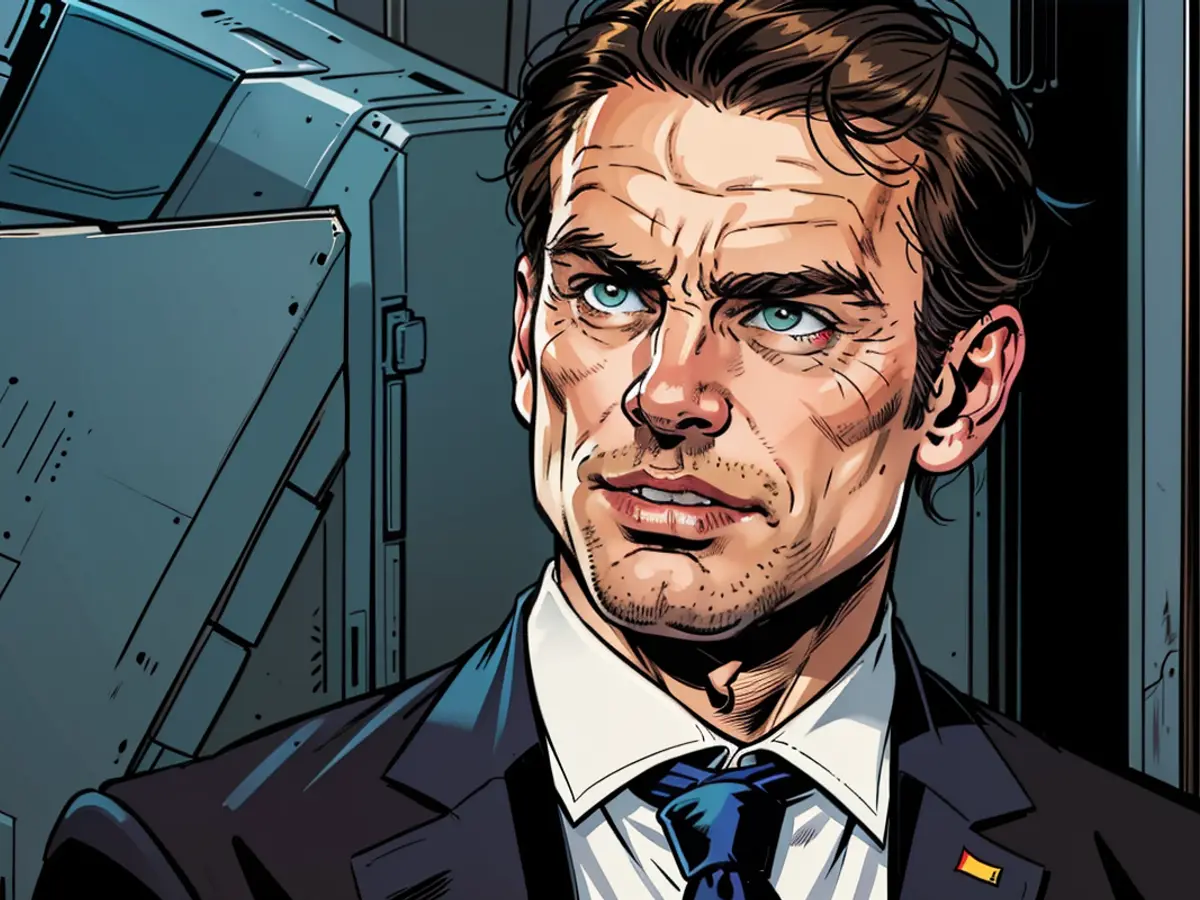France commences rapid-fire election process following triumph of conservative populists.
France's President Emmanuel Macron faced a major setback in the European elections as his party received only 14.6% of the votes - far less than the right-wing populists of the National Rally (RN) who garnered 31.4% of the votes. The Socialists were close behind with 13.8%.
Flustered, Macron decided to call for parliamentary elections on June 30, just before the Olympics in the country. He went on to write on a digital platform that he trusted the French electorate's ability to make wise choices for themselves and the future.
Yann Wernert, a political scientist from Berlin's Jacques Delors Center, stated that the likelihood of Macron improving his position after the advanced elections was slim. He was taking a serious risk. It was possible that the National Assembly could split into three groups - Macron's presidential camp, the left-green camp, and the right-wing populists who would block each other. Wernert added that there was another possibility of an absolute majority for the RN, which had serious implications that would strip Macron of his ability to act.
The RN's party leader Bardella, the party's lead candidate in the European elections, would not be standing for the National Assembly but still desired the office of prime minister, a position that France offers.
Marine Le Pen, the former party leader and future president in 2027, said on election night that they were prepared to take charge of the government. A meeting with representatives from the right-wing extremist party Reconquête was scheduled for Monday night, led by Le Pen's niece Marion Marechal. Reconquête had previously shown an interest in a coalition.
The parties now needed to organize an incredibly brief election campaign. The candidates for the 577 seats had until Sunday to file their applications. Macron's RN must also overcome the challenge of not being able to field enough qualified candidates. The RN had repeatedly demanded the dissolution of the National Assembly in the past but never expected it to actually occur at this time.
Should the RN secure a majority, it would be the first time since 1997 that there would be a "cohabitation" in France. This event has occurred three times before when the president and the dominant political camp were from different political camps, most recently between the conservative President Jacques Chirac and socialist Prime Minister Lionel Jospin from 1997 to 2002.
The government camp, which lost its absolute majority in the parliamentary elections in 2022, promptly switched to election mode as well. The head of Macron's party Renaissance, Foreign Minister Stephane Sejourne, urged the mobilization of all Republican forces.
Economy Minister Bruno Le Maire spoke of an election that would shape the future of the Fifth Republic, deciding "what the French nation will become in the coming years and decades."
The left-green parties, previously broken up by an alliance called Nupes, attempted to reunite. The left-populist party La France Insoumise (LFI) invited representatives from the Socialists, Communists, and Greens for a meeting. Socialist party leader Olivier Faure advocated for the formation of a "People's Front" against far-right parties.
The election campaign coalesced in the midst of the final preparations for the Summer Olympics in France, which commence at the end of July. The second round coincided with the first holiday weekend when many French people traditionally take time off.
Read also:
- In response to the right-wing populists' success in the European elections, France initiated a swift election process, moving towards parliamentary elections on June 30.
- Despite Macron's digitally penned trust in the French electorate, political scientist Yann Wernert from Berlin's Jacques Delors Center expressed doubt about Macron's ability to improve his position in the upcoming parliamentary elections.
- The National Rally (RN), led by Jordan Bardella, had their eyes set on the prime minister's office, despite Bardella not running for the National Assembly.
- France's shift to the right was echoed in Marine Le Pen's election night statement, expressing her preparedness to take control of the government and potentially becoming France's future president in 2027.
- Amidst the organizing of the quick election campaign before Sunday, the National Assembly faced the challenge of ensuring RN had enough qualified candidates to compete in the parliamentary elections.
- If the RN secured a majority, it would mark the first instance of cohabitation in France since 1997, bringing about a political situation where the president and the dominant political camp were from different political camps.
- The tight election campaign coincided with the Summer Olympics' final preparations, taking place at the end of July, a period traditionally filled with holiday festivities in France.







